As part of COP29, Baku hosted panel discussions on achieving sustainability in agri-food systems through combating climate change and measures for integrated management of the Water-Energy-Food-Ecosystem Nexus (WEFE Nexus), Report informs.
The event, which took place at the pavilion of the Islamic World Educational, Scientific and Cultural Organization (ICESCO) in the Blue Zone, focused on strategies for achieving sustainable agri-food systems, best practices, policy frameworks, and technological innovations that support sustainable and proper management of water, energy, and food resources in the face of the climate crisis. The panel discussion was moderated by Fahman Fathurrahman, Expert at Science and Environment Sector at ICESCO.
Speaking at the event, Azerbaijani Deputy Minister of Agriculture Ilhama Gadimova noted that climate change causes problems related to ensuring food security, access to water, and energy use. She added that this necessitates discussing solutions for creating sustainability in agri-food systems, requiring innovative, integrated approaches that balance the urgent needs of farmers and communities.
Gadimova emphasized that comprehensive state programs and financial support tools are being implemented in Azerbaijan to facilitate the transition to sustainable agriculture:
“Efficient use of water and land resources and the conservation of biodiversity form the basis of climate adaptation strategies in the country, with priority given to climate-smart agricultural practices that enhance efficiency and sustainability. Irrigation systems are being modernized by applying drip and sprinkler technologies. Subsidies and low-interest loans are provided to farmers to adopt efficient water use methods. Such investments not only increase productivity but also ensure sustainable use of water and land for future generations.”
Other speakers at the panel discussions included Rana Tanveer Hussain, Federal Minister for National Food Security and Research of Pakistan; Grammenos Mastrojeni, Senior Deputy Secretary General at the Secretariat of the Union for the Mediterranean (UfM); Tarifa Al Zaabi, Director General of the International Center for Biosaline Agriculture (ICBA); Virginie Gillet, Land and Water Officer of the Food and Agriculture Organization of the United Nations (FAO); Issa Faye, Director General for Global Practices and Partnerships at the Islamic Development Bank; and Akinyemi AkinyuugaTechnical Adviser to the Ekiti State Government of Nigeria on Green Economy and Ecological Matters. They shared their views on preventing food losses, ensuring food security, global climate change and biodiversity, strengthening climate resilience, protecting ecosystems, applying digital technologies in agriculture, developing innovative processes in the agricultural sector, forming sustainable supply chains, and increasing the role of women in these areas.
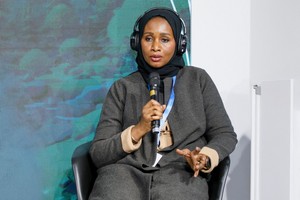

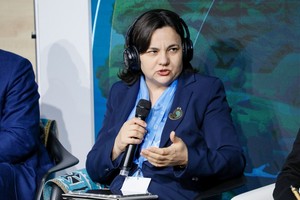
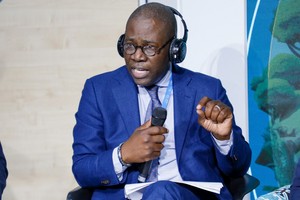
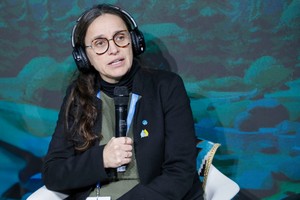
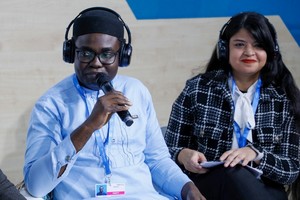


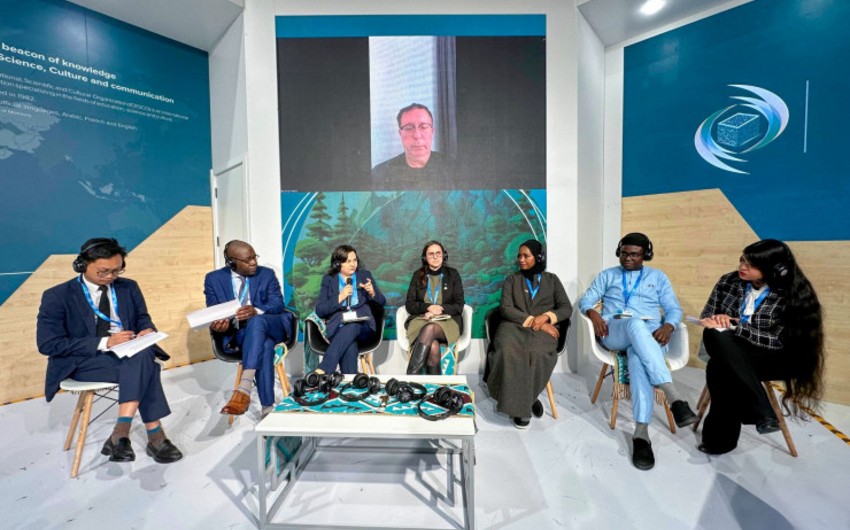 https://static.report.az/photo/04945548-6465-3347-b857-db9ffca9e92d.jpg
https://static.report.az/photo/04945548-6465-3347-b857-db9ffca9e92d.jpg

